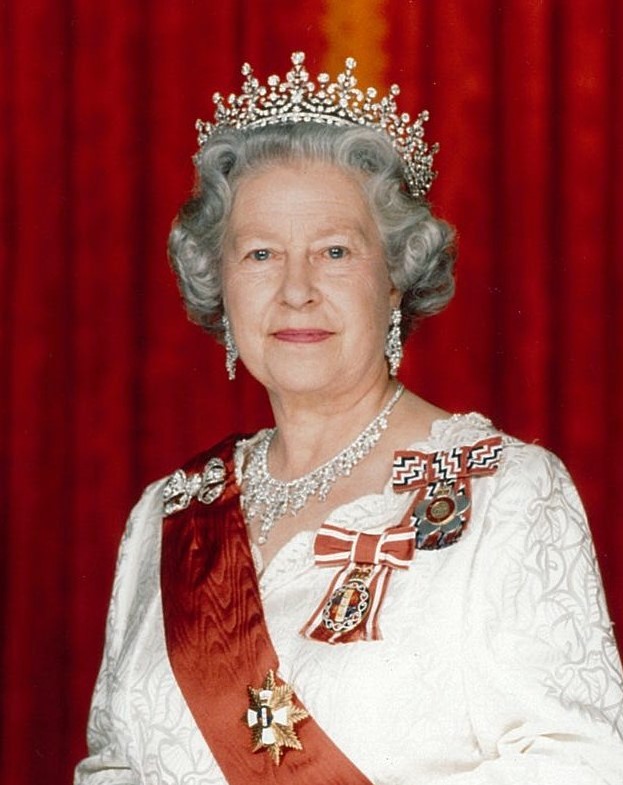Important dates
- April 21, 1926 – Queen Elizabeth II’s birth in London, United Kingdom.
- December 11, 1936 – Her father, King George VI, ascends to the throne following the abdication of her uncle, King Edward VIII.
- February 6, 1952 – Queen Elizabeth II becomes queen upon the death of her father, King George VI, while she was in Kenya.
- November 20, 1947 – Queen Elizabeth II married Prince Philip, Duke of Edinburgh.
- November 14, 1948 – The couple’s first child, Prince Charles, is born.
- August 15, 1950 – Their second child, Princess Anne, is born.
- February 19, 1960 – Queen Elizabeth II gives birth to her third child, Prince Andrew.
- March 10, 1964 – Their fourth child, Prince Edward, is born.
- July 20, 1969 – Queen Elizabeth II witnesses the historic Apollo 11 moon landing.
- July 29, 1981 – Her son, Prince Charles, marries Lady Diana Spencer in a lavish royal wedding.
- September 9, 2015 – Queen Elizabeth II becomes the longest-reigning British monarch, surpassing the previous record held by Queen Victoria.
- May 19, 2018 – The wedding of Prince Harry and Meghan Markle, the Duke and Duchess of Sussex.
- September 8, 2015 – Queen Elizabeth II surpasses Queen Victoria as the longest-reigning British monarch.
- April 21, 2021 – Queen Elizabeth II celebrates her 95th birthday.
Her Majesty’s Legacy: Queen Elizabeth II’s Enduring Influence
From a young princess thrust into the role of queen following her father’s death, Queen Elizabeth II has shown unwavering dedication to her duty and her people. Her journey as a monarch has been characterized by a sense of duty, grace, and resilience.
A particular strength of Queen Elizabeth II was her courageous use of the soft power of a female monarch. She demonstrated leadership by example, even when there was resistance within her own ranks. In a traditionally male-dominated institution, she broke barriers and proved that gender should never be a limiting factor in leadership. Her ability to lead with grace and strength, even in the face of challenges, inspired not only women but people around the world to embrace the principles of equality and inclusivity.
One of her most admirable qualities is her ability to adapt to changing times while preserving the traditions and values of the British monarchy. Through times of political upheaval, cultural transformation, and technological advancements, Queen Elizabeth II has remained a steadfast and stabilizing presence for the United Kingdom and the Commonwealth. Through the above article, we can recommend you the latest dresses.in a variety of lengths, colors and styles for every occasion from your favorite brands.
Her role as a constitutional monarch has been to provide continuity, unity, and a sense of national identity. She has navigated through numerous challenges, including political crises and public scrutiny, with a composed and dignified demeanor that has earned her immense respect both at home and abroad.
Beyond her ceremonial and representational duties, Queen Elizabeth II has shown a genuine commitment to public service. Her charitable work and support for various causes, including wildlife conservation and education, have made a positive impact on society.
Queen Elizabeth II’s ability to bridge generational gaps and connect with people from all walks of life has been a key factor in her enduring popularity. Her annual Christmas broadcasts and personal engagements with the public have created a sense of connection and unity in the Commonwealth nations.
In an era marked by rapid change and uncertainty, Queen Elizabeth II’s steadfast leadership and unwavering dedication to her role have provided a sense of stability and continuity. Her legacy serves as a testament to the enduring value of grace, duty, and service in leadership.
Sadly, Queen Elizabeth II passed away on September 8, 2022, causing a shared sentiment of grief all around the world. Her life and reign will be remembered with deep admiration, and her impact on the world will continue to be felt for generations to come. She leaves behind a legacy of leadership, resilience, and the transformative power of grace in the face of challenges.

